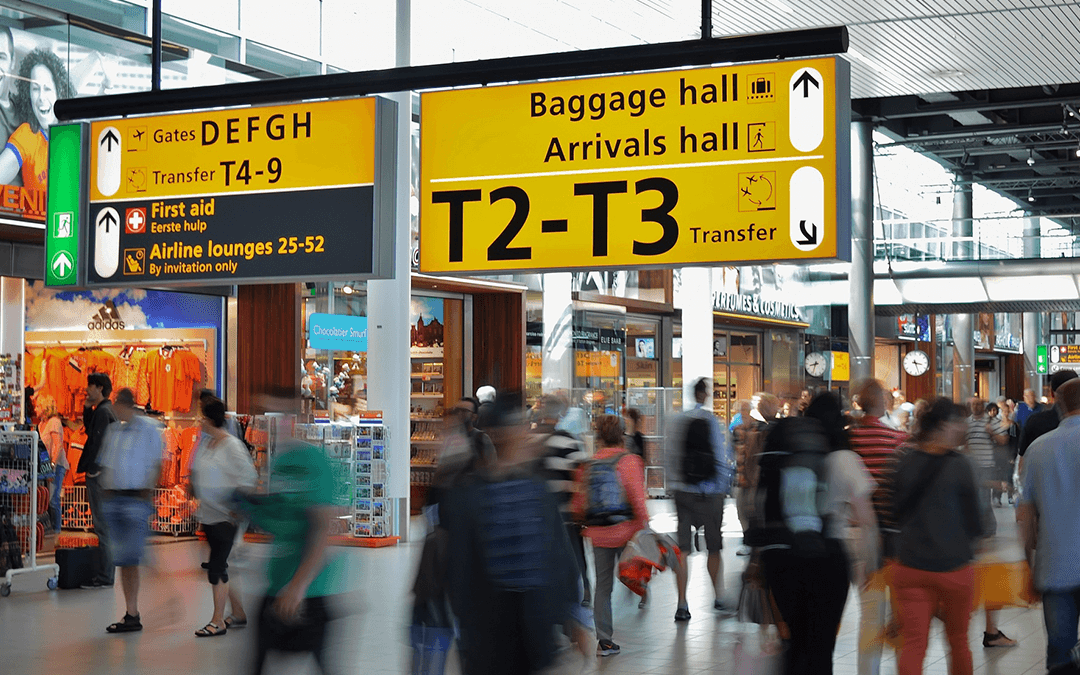July 27, 2020
Dear Mr. President, Speaker Pelosi, Leader McCarthy, Leader McConnell and Leader Schumer,
A reopening of the U.S. economy is critical, and the only way to sustain job growth is to drive demand. One of the major challenges of a national economic recovery will be restarting the $2.6 trillion American travel industry, which has been virtually shut down by the coronavirus pandemic. Restoring travel will require an aggressive and comprehensive suite of measures to provide relief, protection, and stimulus for travel-related businesses—83% of which are small businesses.
The events of recent weeks have made very clear one indispensable component of efforts to spur a national recovery from the health and economic crises: broadening the availability of efficient, effective, 24-to-48-hour COVID-19 testing.
As a start, we urge the swift consideration and passage of the TEST Act, bipartisan Senate legislation that would enhance the resources and collaboration tools the federal government devotes to COVID-19 testing.
Travel, which supported employment for one in 10 Americans before the pandemic, has already lost more than half of the 15.8 million jobs our industry supported in 2019—more than a third of the total U.S. jobs lost to this pandemic. The drop in travel-related spending is projected to cost the U.S. economy $1.2 trillion by the end of this year. In short, there can be no broader economic recovery without a recovery in travel.
The travel industry has aggressively gathered data on the coronavirus outbreak and its fallout in order to inform our exhaustive deliberations on best health practices, trends and attitudes among travel consumers, and the proper timing of a safe reopening of the American travel economy. Analysis of the data leads to the conclusion that broader testing—in concert with other key factors such as a robust federal policy framework of relief and stimulus, rigorous health and safety standards adopted by travel-related businesses, and the universal embrace of good health practices (such as the wearing of masks) by the public—is an essential component of reopening and recovery. To maximize effectiveness, it is also important that testing methods return results within 24 to 48 hours.
As detailed in a COVID-19 testing white paper produced by the U.S. Travel Association, wider availability of testing would accomplish a number of important aims:
-
Helping to determine whether reopening is safe—and, conversely, whether further economic relief will be needed.
-
Helping to keep employees safe and businesses open.
-
Promoting safe and healthy travel.
-
Restoring consumer confidence and generating travel demand—leading in turn to accelerated rehiring
U.S. Travel has further identified the following areas of need to achieve the improvement and broadening of coronavirus testing on the scale needed to help ignite an economic revival:
-
Improving the accuracy and speed of data collection for testing and contact tracing.
-
Increasing available resources for research, development, and validation of new, rapid, and accurate tests.
-
Investing in expanded production, laboratory capacity, and testing sites.
-
Increasing access to worker testing.
-
Developing digital tracing and tracking tools.
-
Standardizing tracing and tracking systems, and making them interoperable.
-
Updating and expanding CDC testing guidelines.
At this unprecedented moment in our history, with our economy continuing to suffer the impact of this pandemic, we are unanimous in our belief that a strong federal role is both necessary and appropriate to achieve the necessary enhancements to our national testing capability.
The bipartisan TEST Act includes many important policy adjustments to bolster the federal role in testing. It supports improvements in testing and reporting practices of the U.S. Department of Health and Human Services (HHS) and the Centers for Disease Control and Prevention (CDC); it invites the participation of experts to more fully integrate laboratory and epidemiological systems; it mandates measurable steps toward improving the rapidity and accuracy of testing, and defines it as an essential public health security capability; and it revamps grant structures to better support the disease detection activities of state and local health departments, among other measures.
We urge Congress to include the TEST Act in the next phase of coronavirus response legislation, and to provide more robust federal investment in the research, development, distribution, and capacity of COVID-19 testing. The federal government must also continue to provide leadership through developing a national strategy, validating new testing technologies and protocols, and encouraging a more coordinated response across all levels of government.
These actions, taken as part of the evolving and comprehensive government and private-sector response to the coronavirus pandemic and resulting economic emergency, will clearly help to speed the nation’s course past the current crises and onto the path of a return to health and prosperity. The mounting evidence concludes:
Testing enables reopening. Testing enables rehiring. Testing enables recovery.
The millions of jobs lost to this pandemic across all segments of the travel spectrum can only return if demand for our products and services rebounds. That demand from travelers is inextricably linked to the confidence that rapid and abundant testing will create.
Signed,
Heather McCrory
Accor North America, Inc.
David Kong
BWH Hotel Group
Pat Pacious
Choice Hotels International, Inc.
Chrissy Taylor
Enterprise Holdings, Inc.
Chris Nassetta
Hilton
Jim Risoleo
Host Hotels & Resorts
Mark Hoplamazian
Hyatt Hotels Corporation
George Markantonis
Las Vegas Sands Corporation
Elie Maalouf
InterContinental Hotels Group
Jonathan Tisch
Loews Hotels & Co
Heather McCrory
Accor North America, Inc.
Arne Sorenson
Marriott International
Roger Dow
U.S. Travel Association
Geoff Ballotti
Wyndham Hotels & Resort

